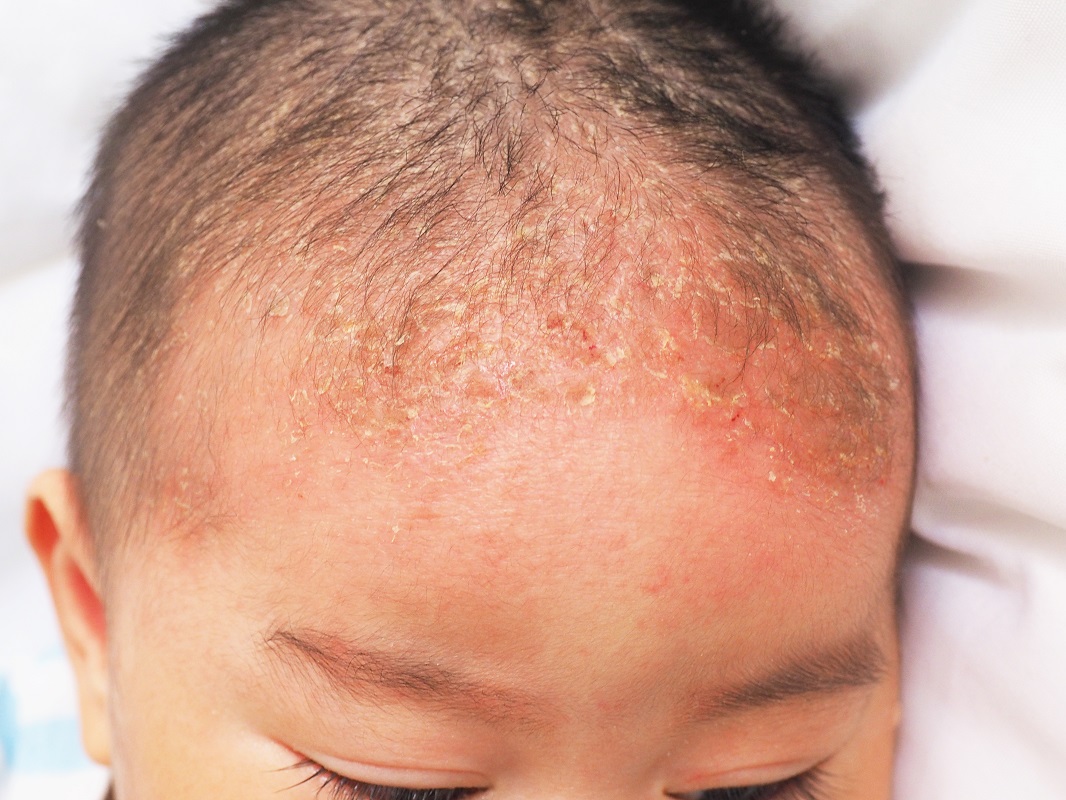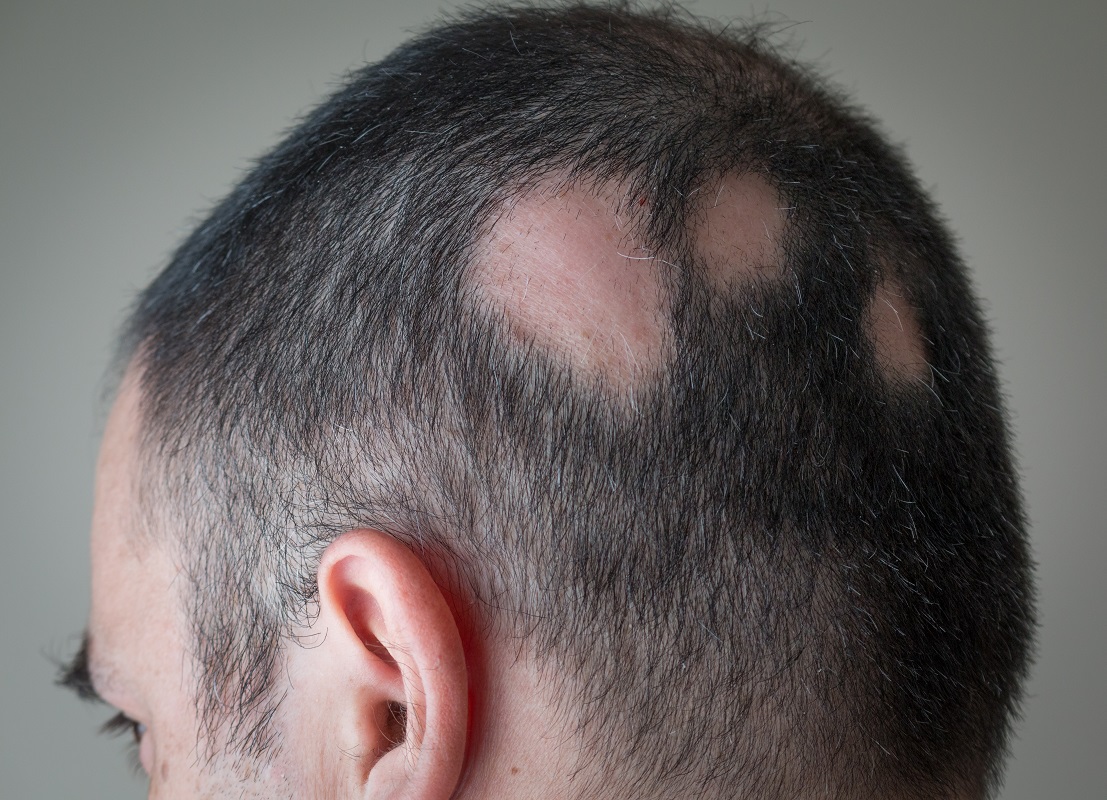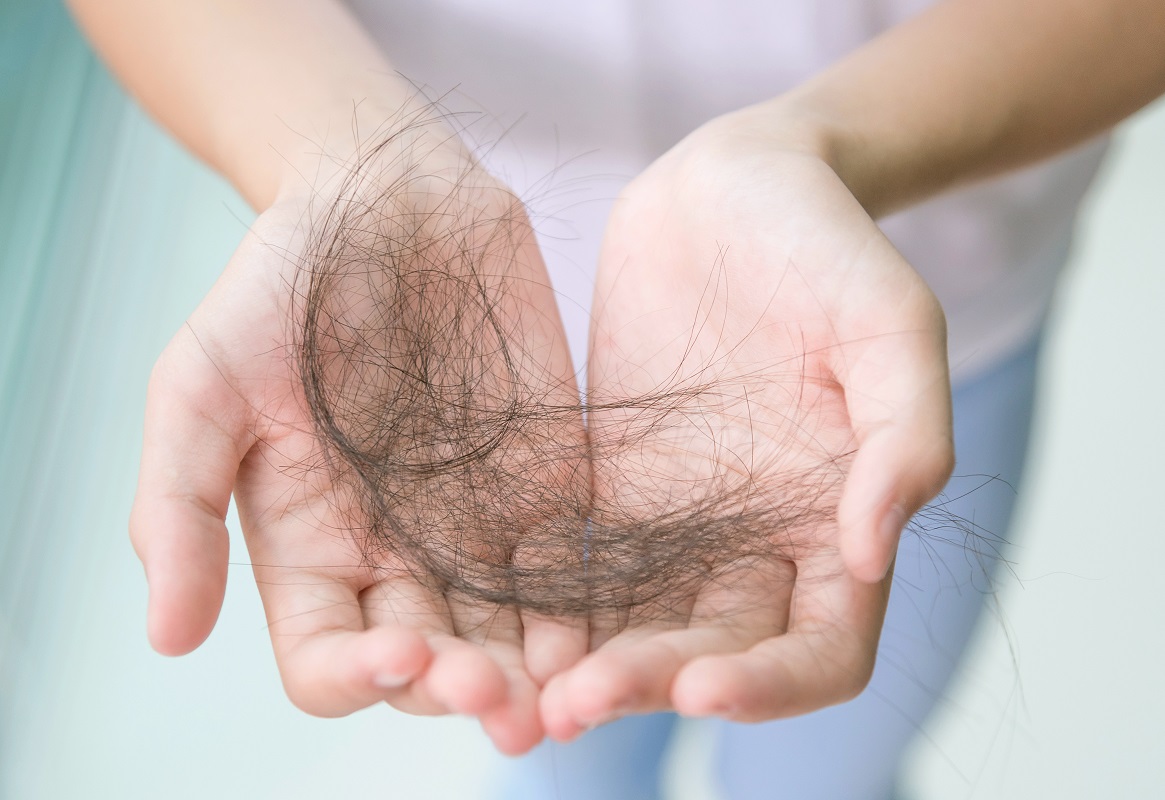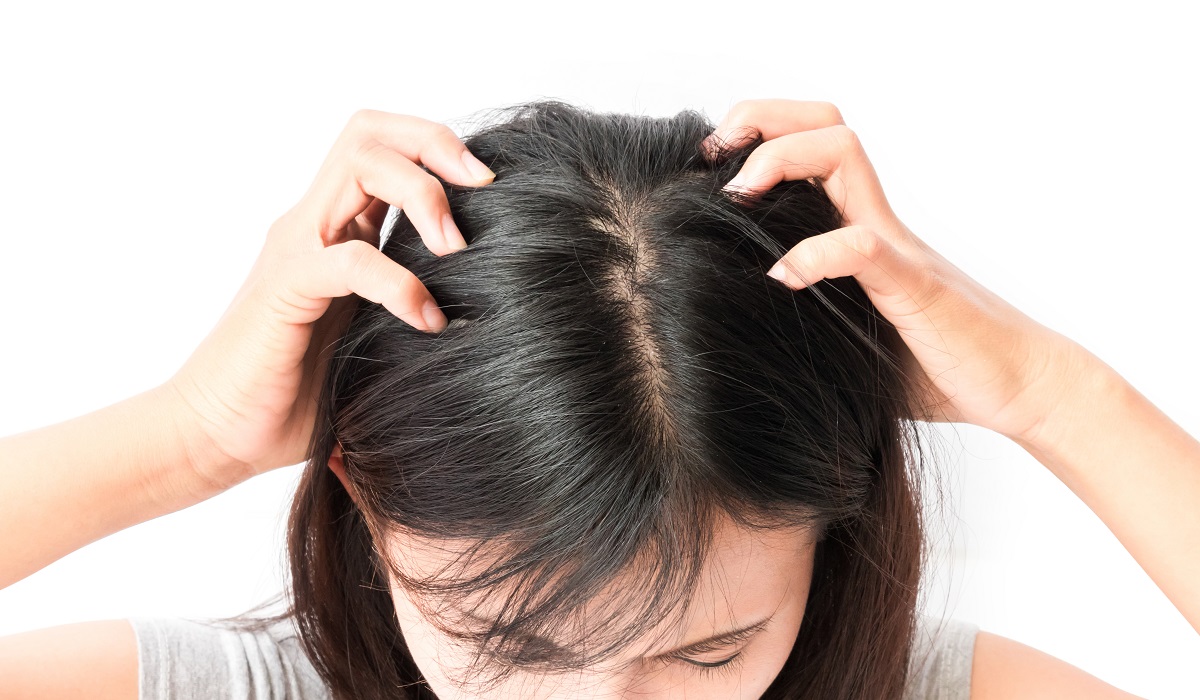Scalp scabs can be uncomfortable, embarrassing, and just plain annoying. From itching to pain, they can make it difficult to style your hair or even go out in public without feeling self-conscious. If you have been wondering why do I have crusty scabs on my scalp, you’ve come to the right place!
Luckily, thanks to modern medicine, there are tons of ways to tackle this problem and have your scalp looking healthier than ever! We’ll use this article to discuss why scabs form on the scalp and provide tips and remedies for healing them quickly.
If you’re struggling with persistent scabs on scalp parts that won’t seem to go away no matter what you do, keep reading!
Causes of Scabs on Scalp
The common causes of scabs on the scalp are usually related to skin conditions and fungal infections. Typically, scabs appear as dry, itchy patches with flaking skin cells and sometimes peeling bumps. If left untreated, these scalp scabs can become increasingly dry and irritated, leading to more persistent and uncomfortable symptoms.
Now, the million-dollar question: Why do I get scabs on my scalp? Let’s find out!
Psoriasis
Psoriasis can be called one of the leading causes of the appearance of scabs on the scalp. It’s a chronic autoimmune disorder that affects the skin cells, causing them to accumulate at rapid rates, forming thick red patches of scaly raised skin. Psoriasis can be extremely itchy and painful and can be triggered by stress, certain medications, infections, or other environmental factors. As to what causes scabs on scalp to appear, it’s the constant scratching and skin accumulation.
People who have psoriasis may experience flare-ups ranging from mild to severe. Treatment options vary depending on individual cases, ranging from topical treatments such as moisturizers and steroid creams to light therapy and oral medications.
Contact Dermatitis
An allergic reaction to certain irritating products, such as shampoos, soaps, dyes, or perfumes typically causes contact dermatitis. Environmental factors like extreme weather conditions or exposure to pollen or other allergens in the air can also be triggers.
The first tell-tell sign of contact dermatitis is if you notice an itchy, red rash that turns scaly and appears as a scab on scalp parts. You can also recognize if you have a burning sensation in the affected area, dryness, swelling, flakiness or discoloration.
Treatment for contact dermatitis will depend on its severity but often includes avoiding any potential triggers that could worsen symptoms, such as:
- fragranced products
- harsh detergents
- using gentle cleansers instead
- moisturizing regularly
- wearing soft fabrics like cotton
- taking regular lukewarm baths rather than hot showers
Seborrheic Dermatitis

Seborrheic dermatitis is a common skin disorder caused by an overgrowth of the yeast Malassezia. It usually appears as a recurring scab on scalp in the same spot, though it can also affect other body areas. This skin condition has more male patients than females, typically showing symptoms before age 30.
The exact cause of seborrheic dermatitis is related to hormones, stress levels, immune system issues, or genetics. Some factors linked to this condition include oily skin, cold weather, and infrequent shampooing. These can increase oil production on the scalp and allow the fungus to grow unnoticed.
Minor Injury
When you have experienced an injury, the last thing you would wonder is why I have scabs on my scalp. You wouldn’t expect to see scabs after an injury because they are related to skin conditions. However, healing an injury causes new skin to grow, resulting in peeling of the skin and scabs. When a wound is present, the body produces a protein called fibrin that helps form clots.
Injuries like lacerations caused by blunt force trauma can also lead to scab formation on the scalp, as these wounds require stitches for repair and will naturally clot before forming a protective layer. Burns from heat sources like curling irons or flat irons may also cause discolored patches of skin.
Do not do any scalp picking of the newly formed protective layer because this can interfere with proper healing and potentially lead to infection.
Infected Scalp Injury
An infected scalp injury can result in scabs on the scalp because of several factors. For example, bacteria and fungi on the skin can enter through open wounds, leading to an infection. This usually happens when a wound isn’t properly desensitized or treated with antibiotics. Infection can also occur due to regular picking scalp scabs.
Clean any open wound on the scalp immediately after an accident by running it under cold water and applying gentle pressure to stop any bleeding.
Impetigo
Impetigo is a highly contagious skin infection caused by bacteria that affects both children and adults. It can lead to the formation of scabs on the head, as well as scalp lesions. Close contact with an infected person or touching objects they have touched can easily spread the infection. Impetigo on the scalp may also appear as pus-filled blisters, which can become itchy and cause discomfort.
To treat impetigo, antibiotics are usually prescribed to help clear up the infection and stop it from spreading further. If you have impetigo, try using aloe vera gel or oatmeal baths to soothe any itching or discomfort caused by scabbing on the scalp.
Folliculitis
Folliculitis is a skin condition that also causes scabs on the scalp. It happens when the hair follicles become inflamed, often because of bacteria or fungi. You may feel itching, burning, or pain in these areas.
To treat it, you can use antibacterial creams or ointments to get rid of any infection and reduce inflammation. With proper treatment, folliculitis should be easy to treat.
Acne
Acne on the scalp can lead to scabs due to inflammation and infection. They can occur on the scalp due to excess oil production, poor hygiene, and even hormonal changes.
The acne may appear as dry patches that start small but can grow in size and become scaly or crusty if left untreated. It is important to seek medical advice for treating acne on the scalp, as some forms may require medication or topical treatments, such as shampoo, creams, lotions, or oral antibiotics.
Proper hygiene, like washing your hair regularly with a mild shampoo, will help reduce inflammation. At the same time, avoid harsh combing or brushing of the hair to reduce irritation of existing breakouts.
Cysts
Cysts on the scalp can lead to scabs and cause discomfort. Cysts appear as red, inflamed bumps, which may be filled with pus and be very tender to the touch. When left untreated, these cysts can become larger and form a thick crust or scab on the scalp, which makes it hard to brush or comb without causing further irritation.
Scalp psoriasis
Scalp psoriasis is a type of psoriasis that attacks solely the scalp leading to the appearance of scabs and flaky patches of skin. It’s caused by an overactive immune system, which alerts the skin cells to reproduce faster. These patches can be itchy and uncomfortable, and they may also crack, leading to the presence of scabs on the scalp.
Although it typically only appears on the head, other forms of psoriasis present symptoms elsewhere on the body. Treatment for scalp psoriasis usually involves moisturizing creams, ointments and topical medications containing corticosteroids, vitamin D derivatives, or tar.
Note that some treatments may not be effective for everyone. Always consult a doctor before trying any new scalp psoriasis treatments.
Head Lice
Head lice are tiny parasites that attach to your hair and scalp and feed on your human blood. If lice get big enough, they can resemble dandruff. However, compare dandruff vs, lice, and you’ll realize the difference.
Lice lay their eggs near the base of the hair, where they can be difficult to detect. They cause intense itching that leads to the formation of scabs. Scratching at the scalp can open up wounds that may become infected.
Head lice are easily spread through children but can attack adults too. They reproduce rapidly and spread easily, making them difficult to control without proper treatment and hygiene practices. Treat lice with medicated shampoos containing insecticides. Always thoroughly wash and disinfect bed linens and clothing after treatment.
Allergic Reactions
Sometimes the answer to why scabs itch can be an allergic reaction on the scalp. When an allergy to a particular substance is present, the body produces a protective antibody called Immunoglobulin. This antibody binds to certain cells and releases histamine, which causes itching. If left untreated, this can lead to ruptured capillaries in the scalp and the formation of scabs.
Common allergens that may cause scalp scabs include:
- dust mites
- plant pollen
- pet dander
- mold spores
- food or medication additives
- certain skincare products
Allergic contact dermatitis is one of the most common types of allergies that result in scabbing on the scalp upon reacting with shampoos, hair dyes, conditioners, and other styling products.
Skin Infections

Common skin infections that may lead to scabs include folliculitis, impetigo, and tinea capitis, all of which are caused by bacteria or fungus. Tinea capitis is caused by ringworm fungus. It usually presents small patches of reddish-brown skin with round and scaly borders.
All these infections can be very uncomfortable and require aggressive treatment with antibiotics or antifungal medications to clear up the infection and prevent further damage to the scalp and hair follicles. Doctors may also prescribe medicated shampoos with salicylic acid or coal tar to reduce inflammation and help remove any remaining scab crusts from the scalp.
Symptoms of Scabs on Scalp
Symptoms of scalp scabs include:
- inflammation
- itching
- flaking
- pain
- tenderness
- affected areas appear red and swollen
- the scalp may feel tight or dry
- scabs may be surrounded by a halo of lighter-colored skin
Scalp scabs are sometimes mistaken for dandruff, but there are some vital differences between the two. Dandruff is usually characterized by small white flakes that move away from the scalp when scratched. On the other hand, scabs are typically thick and crusty patches on the skin’s surface that may bleed.
If you are wondering if is dandruff contagious, know that it’s not. Anyone can develop it, and it’s usually due to hormonal changes. Dandruff may cause itching but does not often involve inflammation or pain, whereas scabs can be very painful and inflamed. Sometimes, bald dandruff could appear, where dandruff is visible on bald spots on the scalp.
Treatment options will vary depending on what is causing the problem. In most cases, the following prescription medications are used:
- topical steroids
- antifungals
- antibiotics
- dietary changes (avoiding foods containing gluten)
Diagnosis of Scabs on Scalp
Diagnosis of scalp scabs is made by reviewing the patient’s medical history and performing a physical examination and certain tests. Doctors can also do some of the following:
- Take samples from the scab or lesions and examine them under a microscope, looking for signs of infection or abnormal cells.
- Perform blood tests for any underlying allergies or autoimmune diseases.
- Skin biopsies may be necessary to determine the underlying cause of scalp scabs.
- Use ultraviolet light to detect fungal infections, which is especially helpful for diagnosing ringworm fungus.
- Perform imaging tests, such as CT scans and MRI scans, to look for any internal abnormalities causing the scalp issues.
- Referral to an allergist for skin prick testing to identify possible allergic triggers that are causing the scabs.
Do Scabs on Scalp Cause Hair Loss?

Yes, scabs on scalp can cause hair loss. Depending on the underlying cause of the scab, it may lead to inflammation and damage to the scalp and hair follicles, which can result in hair loss.
Certain medications used to treat the underlying condition may also contribute to hair loss. Work closely with a doctor to identify any potential causes of scalp scabs and develop a personalized treatment plan that addresses the scabs and any associated hair loss.
Remedies for Scabs on Scalp
Here are a few natural remedies for scabs on the scalp to try:
- Try not to scratch the itchy area because it can lead to infection.
- Use gentle, non-irritating shampoo for your hair to avoid exacerbating any existing scabs.
- Regularly apply an anti-dandruff or antifungal shampoo.
- Make lifestyle changes: reduce stress levels, eat a balanced diet, get enough sleep, and drink plenty of water.
- Use Australian Tea Tree Oil, known for its anti-inflammatory and antimicrobial properties.
- Use Coconut oil which is effective at soothing irritated skin thanks to its moisturizing capabilities. It also contains lauric acid, which helps protect against bacteria.
- Try oatmeal baths, an all-natural remedy for irritated skin, including those affected by scabs.
How Do You Treat Scalp Scabs Naturally?
Natural treatment of scalp scabs includes practicing and using all the remedies mentioned in the previous section. Keep in mind that you’ll also need to make lifestyle changes to achieve better results. This means reducing stress levels to the minimum and introducing a balanced diet.
How to Prevent Scabs on Scalp?
Maintain a healthy lifestyle. Consume plenty of fresh fruits and vegetables, exercise regularly and get enough sleep. Avoid unhealthy habits like drinking or smoking.
Make it a habit to clean your scalp with a gentle shampoo to reduce inflamed scabs and provoke new skin growth. Avoid shampoos with harsh chemicals or heavy fragrances that can irritate the scalp easily.
Protecting your scalp from sun exposure is a must. Wear hats or sunscreen outside for extended periods to prevent further damage.




